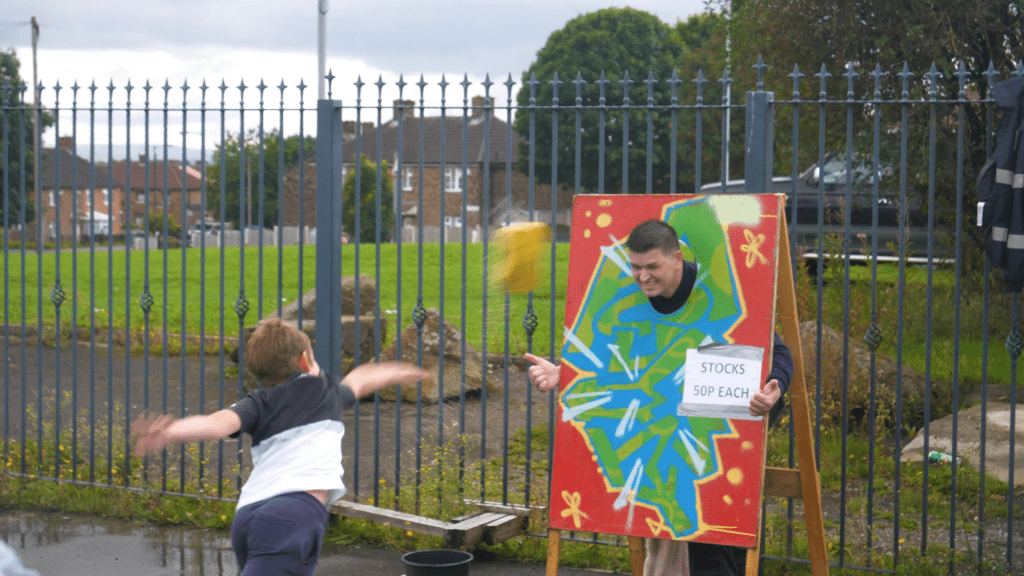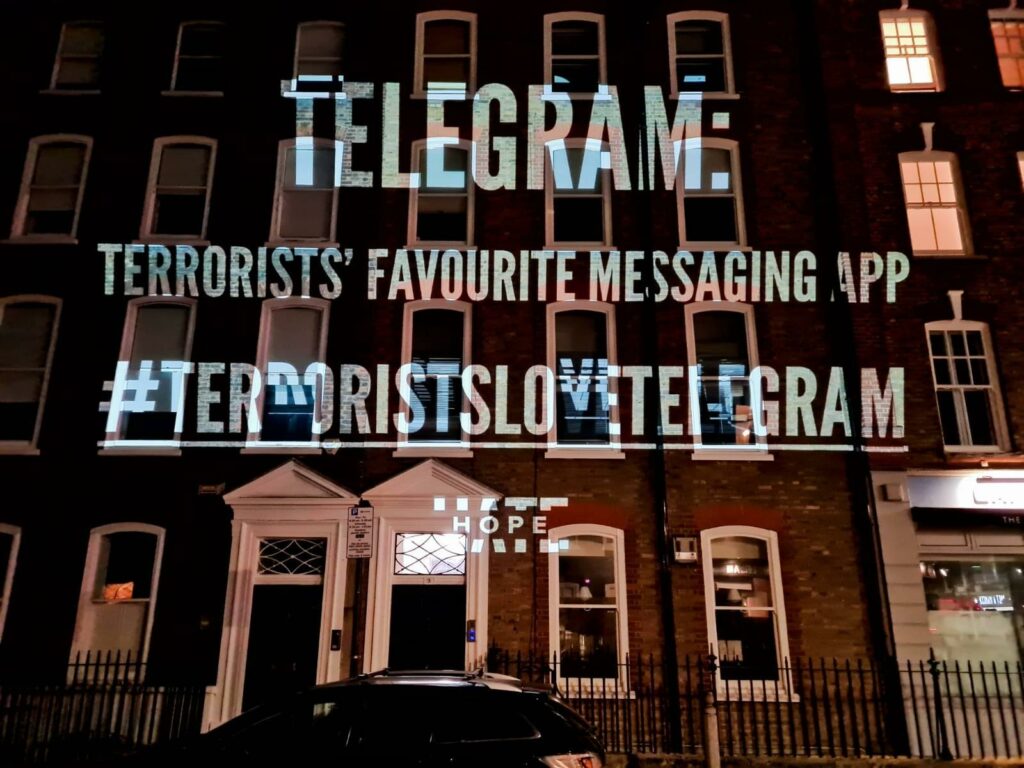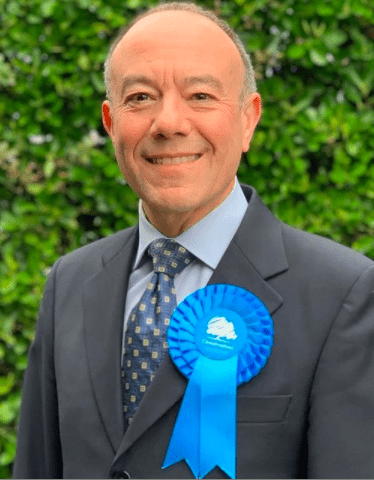HOPE not hate uses cookies to collect information and give you a more personalised experience on our site. You can find more information in our privacy policy. To agree to this, please click accept.
Despite all the challenges 2021 posed, together we’re still making progress against hate. HOPE not hate CEO Nick Lowles revisits some of our successes from last year.
As the pandemic continues, so has HOPE not hate’s research into the links between the COVID-19 outbreak and hate. State of HATE 2021 – the leading annual report outlining the key trends and changes in the domestic and international far right – detailed how the last year of pandemic has sped up the evolution of the British far right into a digitally networked threat. COVID-19 has quickened the demise of many traditional far-right groups while younger, more tech-savvy activists have thrived. The report also highlights how the outbreak of the pandemic was met with a surge of anti-Chinese violence and racism.
We also highlighted the threats posed by Coronavirus conspiracy theories, and how these can drive people to Holocaust denial. Our researchers have monitored antisemites and Holocaust deniers spreading their lies on social media and have watched in real-time some of those who started as anti-lockdown or anti-5G activists become radicalised towards antisemitism, Holocaust denial and even adopt veneration of Hitler.
Our Building Back Resilient report analysed how the coronavirus outbreak has impacted social cohesion and integration. It followed 3 round table sessions with councils and detailed research with nearly 20 other authorities, culminating in a cross-party letter to Michael Gove by leaders at 20 councils. This important piece of research shows that the pandemic has effectively created a ‘perfect storm’ – exposing weak social infrastructure, accelerating certain types of automation and stretching local authorities, many of which were hit hard by austerity long before the coronavirus.
We also worked to help identify the drivers of Covid vaccine hesitancy, particularly within minority communities,and ways that this could be addressed. Through the Anti-Muslim Hatred Working Group we disseminated this research to Muslim organisations and Health Trusts across the country.
This year we’ve spoken to people working across a huge range of local authorities as part of our Hopeful Towns project. This has included running 6 practical webinars for over 200 different community stakeholders and developing a series of best practice guides on community resilience to hate, due out in early 2022.
We’ve continued to work closely with the migration and refugee sector to better understand the extent and nature of the threat posed by the far right. We’ve shared intelligence from our monitoring of far right activity and provided guidance for responding effectively and safely to the challenges posed by the far right.
As part of our work challenging prejudice in schools, the Autumn term has been our busiest ever. We’ve run workshops for over 3,000 students a month and over 1,000 teachers and school staff joined our CPD training and our work continues to be held up as a model of good practice. Early in the year we brought out Signs of Hate, an essential guide for anyone working with young people, and needing to know about online and far right radicalisation. A copy went to safeguarding leads in every secondary school in England and Wales.
At a very local level, we have continued our long-term community project on the Buttershaw estate in Bradford, with the continuation of the food bank and delivering hot meals to vulnerable and isolating people which we began at the start of the pandemic. In August, we organised a community fun day on the estate, which was attended by over 500 people and produced a local tabloid newspaper to promote local services and highlight great initiatives that people could get involved in.

Finally we launched the HOPE heroes campaign, encouraging members of the public to nominate and vote for the people spreading hope in their communities. The winners and runners up received £9,000 between them in prize money to continue their important work.
Despite ten years of attempts by social media companies to regulate and moderate hate speech, our groundbreaking Antisemitism in the Digital Age report found that antisemitism is still rife across every social media platform. Our research shows how antisemitism is most commonly and widely spread through conspiracy theories, which saw an unprecedented rise in popularity during the COVID-19 pandemic.
Thousands of people, including MPs from five political parties, signed an open letter calling on messaging app Telegram to take action against terror-promoting far right networks on their platform. We took the #TerroristsLoveTelegram message straight to their HQ with an attention-grabbing projection. The report also generated hundreds of pieces of press coverage.

After a long wait the government published a draft of the much needed Online Safety Bill. While the draft bill included much that we welcome, we are increasingly concerned that this crucial bill could be dragged into the ongoing culture war in a way that could dangerously undermine its effectiveness. HOPE not hate has been working across parliament to contribute to discussions that are shaping this legislation, including leading a coalition of organisations on a report on the Bill and giving evidence at a Petitions Committee meeting on anonymity and related issues.
We supported others with expertise and research in opposition to the Nationality and Borders Bill, particularly on the threat of far right violence against those seeking sanctuary in the UK and have worked closely with political parties, trade unions and civil society to understand the dangers of the Bill and seek ways to address them.
HOPE not hate also drew attention to the government’s new Higher Education (Freedom of Speech) Bill, which risks protecting Holocaust deniers and other hate speakers on campus. The Bill raised the shocking prospect that antisemites and notorious Holocaust deniers such as disgraced historian David Irving and former British National Party leader Nick Griffin could receive compensation if they were invited to speak at a university campus and the event was then cancelled. The government has since offered reassurances that Holocaust deniers would not benefit from these protections, but we continue to monitor the situation to ensure these promises are reflected in the Bill.
In November, Azeem Rafiq’s revelations about the racism he experienced at Yorkshire Cricket Club rocked the cricket world as well as shining a spotlight on structural racism in sport and society at large.
The HOPE not hate community took action immediately, campaigning in solidarity with those affected by the hate brought to light by Azeem Rafiq’s revelations. Thousands of people signed an open letter calling on Yorkshire CCC to release their report into racism at the club. There were over 500 pieces of media coverage drawing attention to the abuse cricketers have suffered and HOPE not hate staff briefed numerous MPs on steps they can take to address racism in the sport.
HOPE not hate also launched our new cricket education project as part of our commitment to #RunRacismOut both on and off the pitch. If you want to be part of this long term effort to end racism in cricket, buy your ‘Racism is not banter’ t-shirt here to support educational training at clubs across the country.
Following England’s defeat to Italy in the final of Euro 2020, there was a dramatic rise in the amount of racist abuse directed at Black squad members. HOPE not hate research into the scale of the problem underlines exactly why the players took the knee.
In October, HOPE not hate revealed that Tory councillor Tim Wills was a secret supporter of Patriotic Alternative, a racial nationalist and fascist organisation that seeks the removal of ethnic minorities from the UK. We welcomed his resignation, but Wills still remains a member of the Tory party.
Wills also stated that there is a ‘right wing minority’ within the party who support his views – this should act as a wake up call to those who still deny the scale of the internal racism and Islamophobia issue facing the Conservatives.

HOPE not hate’s research and intelligence has contributed to five people being convicted for terrorist offences in the last 12 months. This includes Oliver Bel, who was found guilty for membership of National Action, and a number of young people who had been involved in the teenager terror group, British Hand.
We brought out two more Heroes magazines, celebrating those who have stood up to racism and fascism over the years. In January we produced Heroes of the Civil Rights Movement, to remember those who stood up to racism and white supremacy in the United States. In August we published Heroes of the Terraces, which celebrated those who have challenged racism and fascism in football around the world.
And finally, two books came out in 2021 written by HOPE not hate staff members. I wrote Codename Arthur, the true story of the anti-fascist spy who spent 10 years infiltrating the BNP and identified the London nailbomber. This book was released to coincide with the launch of a Netflix documentary on the nailbombing. Then my colleague Joe Mulhall, brought out Drums in the Distance: Journeys into the Global Far Right, a terrifying and timely look at the spread of far-right movements across the globe often drawn from his own personal experience from his time at HOPE not hate.
This work is only possible because of our supporters, including thousands of HOPE Action Fund members who donate regularly to fund HOPE not hate.
Members give anything from £3 a month. There’s no free tote bag for joining, just the knowledge that you’re sustaining our work. If you’re not already, will you become a member of the HOPE Action Fund today?

Right-wing comic Kearse saves the worst material for his anonymous Telegram account HOPE not hate has identified an anonymised Telegram account belonging to the GB…